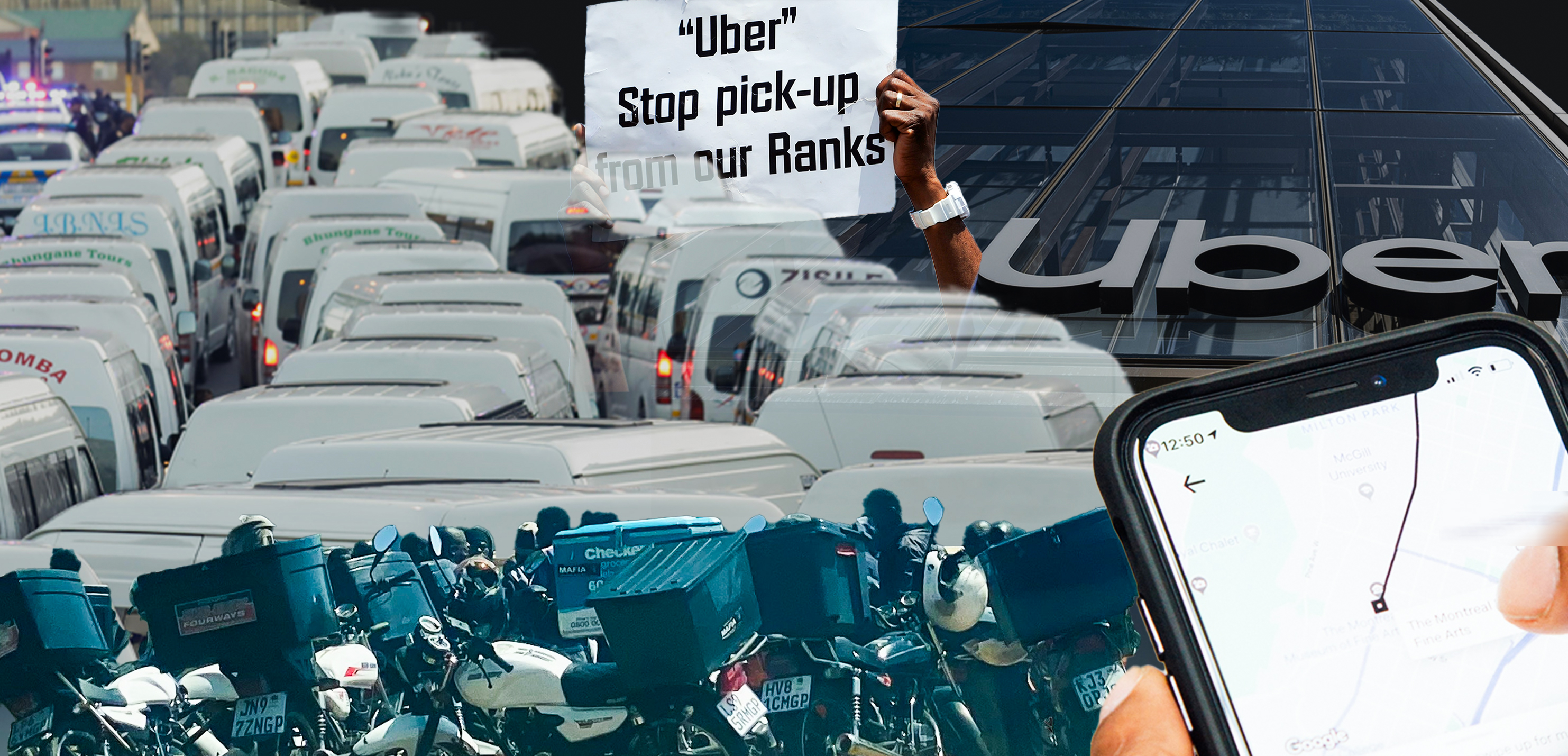I am sure that I am not alone in finding that one of the biggest frustrations of driving - along with potholes, people who drive on the wrong side of the road, minibus taxis and traffic in general - is the huge rise in the number of people driving motorbikes.
I don’t have anything against them. They’re providing an important service (including to my home), they’re moving the economy and, most importantly, they’re getting an income for their families.
But what really irritates me is that they’re forced to drive while looking at their phones. It means that you are behind them and, firstly, scared for them because they’re not paying attention and, secondly, hugely irritated because they’re driving so slowly as a result.
I was reminded of this when I read a report that Uber is now offering what was always going to be the end point of their disruptions in how we get around.
Instead of spending money and wasting space in a car, now, in some places, you can get a ride on the back of a motorbike.
You can imagine the advantage of this: it’s hugely cheap and so many journeys really involve one customer.
It also increases your options. You can spend a fortune and arrive at an event in splendid isolation in an Uber Black, rush to that important meeting in a Comfort, just go to work in a Go, or, if you’re strapped for cash (and who isn’t!), use their motorbike service.
It makes so much sense. So often you see someone using the Bolt service, being driven around in a little orange Qute that isn’t even a car. Technically, and legally, it’s a quadricycle.
You probably already know the difference between the two; it’s all about size.
But you’re still wasting all of that space.
And if I was given the choice of a ride on the back of a bike, or a trip in one of those, I’d probably take the bike (so long as it’s not the middle of the Gauteng winter).
What I find really fascinating about this is that, first, it’s following trends elsewhere.
When I went to Rwanda in 2017, there were motorbikes carrying passengers everywhere. And the service obviously worked; it was quick and cheap. I’m sure the same thing happens in many other countries.
But the second thing is how much disruption has occurred in our transport market in just the past 11 years or so. And how much of that has to do with Uber.
Before Uber came to South Africa, the car-taxi industry hadn’t really changed in about 50 years. Maybe even longer.
Taxis were something you saw outside airports and train stations. You knew nothing about the drive and very little about the car.
When Uber came, that way of life was not going to last. And those drivers knew it!
They used violence to try to force Uber drivers out.
Even quite recently, when I used the Gautrain to Pretoria, Uber drivers refused to come to the station because of the taxi men hanging around there.
Last week at Cape Town International Airport, I saw people hanging around shouting “taxi”. Compared with Uber, where you know so much about the driver, and know the car will be reliable, who would use these taxis?
But if no one uses them, why are they still hanging around there?
The real point though is how quickly this disruption has happened.
Virtually no change for 50 years, then suddenly a whole revolution in transport.
And it hasn’t ended yet; there will be more disruption to come.
It’s a really good example of how a whole series of technologies around our phones, GPS, credit card payments and many other things have come together to make a real change in the way in which we move around.
But it also reminds us of how new technologies work. They start as something cool and fun for the rich, and often end up as a necessity for the middle classes, sometimes even for those who have very little.
Because of the nature of innovation involving information (think X, Facebook, and video and music streaming), often these services are available in a very democratic way when they start. In the past, most new innovations were only for the rich and stayed like that for a long time.
No longer. Now you can make a lot more money providing services to everyone.
Of course, there are always people who lose out. I fear there will be some attacks on people who drive these bikes. It seems to me almost inevitable that this will happen.
I also hope and pray that when these drivers are carrying someone behind them, they find a way to both watch the map on the phone and keep their full attention on the road ahead. DM
Africa
After the Bell: Uber, motorbikes and disruption on the road to transport democratisation





